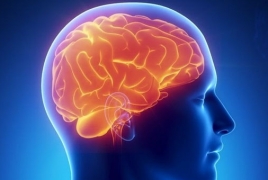
Building on decades of research, a new paper brings humans one step closer to a vaccine that targets the neurological hallmarks of Alzheimer's disease. Prevention may soon be possible, medical News Today.
Alzheimer's disease, the most common form of dementia, is a degenerative neurological disease.
Memory issues are often the first sign of the condition, which steadily progresses over time.
Although scientists are still investigating the exact causes of Alzheimer's disease, they believe that certain neurological markers play a significant role.
The disease seems to involve a buildup of specific proteins in the brain called beta-amyloid and tau. Doctors refer to these abnormal congregations as plaques and neurofibrillary tangles respectively.
Many scientists are on the hunt for a vaccine, including Dr. Roger Rosenberg, founding director of the Alzheimer's Disease Center at UT Southwestern in Dallas, TX.
In Dr. Rosenberg's latest paper, he describes a new approach. His team started by injecting DNA coding for amyloid into the skin rather than the muscle. The injected cells created a three-molecule chain of beta-amyloid (ab42).
This molecule chain sparked an immune response, generating antibodies that target ab42. The antibodies prevented the buildup of amyloid plaques and also indirectly prevented the buildup of tau.
The current study examined this response in mice and found that the vaccine produced a 40 percent reduction in beta-amyloid and up to a 50 percent reduction in tau. Importantly, there were no adverse immune reactions.
"This study is the culmination of a decade of research that has repeatedly demonstrated that this vaccine can effectively and safely target in animal models what we think may cause Alzheimer's disease," says Dr. Rosenberg, who is excited about the results. "I believe we're getting close to testing this therapy in people."

